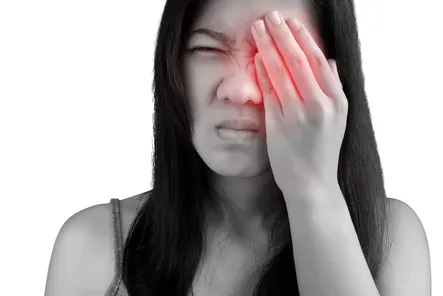The sooner an eye disease is caught and treated, the better. Although eye disease is a leading cause of vision loss, many conditions can be detected in the early stages. Annual comprehensive eye exams at Today's Vision Conroe in Conroe can help you keep your eyes healthy throughout your life.

Macular Degeneration
Macular degeneration is a progressive eye disease that occurs when a part of the retina called the macula is damaged. There are two forms of macular degeneration: dry and wet.
Dry macular degeneration is the more common form of this condition and is less severe. Wet macular degeneration occurs when new blood vessels form beneath the retina, which can lead to blood or fluid leakage.
During an eye exam, an optometrist may dilate your eyes to see your macula more clearly. If you have signs of macula damage, additional tests, such as Optical Coherence Tomography (OCT) or Fundus Autofluorescence Imaging will be used to confirm the diagnosis.
Vision rehabilitation and low-vision devices can be used to help people with dry macular degeneration manage their condition. The treatment for wet macular degeneration typically involves the injection of medications. These medications can prevent further damage and may be able to stabilize a patient's vision.
Glaucoma
Glaucoma occurs when pressure builds inside the eye, causing damage to the optic nerve. In most cases, people with glaucoma don't experience any significant symptoms until the condition has progressed, which makes regular screenings crucial.
Typically, an optometrist will screen for glaucoma in a comprehensive eye exam. Tests that look for signs of damage in the optic nerve, such as eye pressure checks, optic nerve imaging, and corneal thickness tests, can help an eye doctor diagnose the condition.
Depending on the severity of the disease, treatment for glaucoma may involve prescription eye drops, oral medication, or surgery. Types of surgery used to treat glaucoma include filtering surgery, laser therapy, and minimally invasive glaucoma surgery, which can reduce pressure in the eye.
Cataracts
When proteins on the lens of your eye break down, it can interfere with your vision. Cataracts typically develop slowly and cause a person to experience blurred or cloudy vision. Eye doctors are able to screen for cataracts during an eye exam with tools like an ophthalmoscope or a slit lamp. The treatment for cataracts is surgery, but your optometrist may not recommend surgery immediately after a cataract is diagnosed. Instead, your condition will likely be monitored over time. If a cataract

